We want you to receive the compassionate treatment you deserve.
Transforming your Life with Specialized OCD Counseling for Lasting Recovery
OCD Counseling and Therapy
Our office provides Obsessive Compulsive Disorder (OCD) counseling led by licensed psychologists and counselors who specialize in treating OCD, anxiety, and depression. If you’ve been searching for an OCD therapist near me, we’re here to help with evidence-based approaches proven to make a real difference.
What Is OCD?
Curious about OCD symptoms and how it develops? Visit this page to learn more about OCD.
Why Choose an OCD Specialist?
It’s important to work with therapists trained in Cognitive Behavioral Therapy (CBT)—especially approaches tailored for OCD, including:
ERP (Exposure and Response Prevention Therapy) – the gold standard for OCD treatment.
Metacognitive Therapy (MCT) – addresses the way we think about our thoughts.
Inference-Based CBT (I-CBT) – focuses on mistaken beliefs that drive obsessions.
ACT (Acceptance and Commitment Therapy) – builds resilience by changing your relationship with thoughts.
Traditional talk therapy or relaxation techniques are not recommended for OCD. In fact, these methods can unintentionally reinforce compulsions and make symptoms worse.
How ERP Therapy Works
Through both research and clinical practice, ERP therapy has proven to be the most effective treatment for OCD. It helps you:
Face intrusive thoughts and fears without relying on compulsions.
Reduce distress over time by “retraining” the brain’s response.
Break the cycle where compulsions temporarily relieve anxiety but strengthen OCD in the long run.
While ERP may feel challenging at first, it gives you the tools to reclaim your life from OCD.
Additional OCD Resources
We recommend exploring highly rated OCD books to better understand the science and strategies behind ERP, MCT, ACT, and I-CBT.
Get Support From OCD Specialists
If you’re ready to take the next step, our team is here with expert support from experienced OCD therapists who understand the complex relationship between OCD, anxiety, and depression. Contact us today to start your journey toward recovery.
A modern approach
Step 1: Complete a 60-minute intake interview and if you are being treated for OCD you will complete an assessment called the Yale-Brown Obsessive-Compulsive Scale (typically done at the second appointment).
Step 2: Your therapist will work with you to learn about the biology and patterns associated with OCD, will discuss the rationale for treatment, and will help you understand the treatment structure.
Step 3: Your therapist will introduce self-monitoring and will create a hierarchy of exposures with you. You will learn the principles of Metacognitive Therapy (MCT) and Exposure and Response Prevention (ERP). You may also work on creating something called an acceptance script.
Step 4: You will work with your therapist through the hierarchy of exposures. Commitment to the therapy is essential - your therapist will work with you to identify possible secondary gains or other therapy-interfering behaviors as necessary. Willingness to complete the exposures is vital to the effectiveness of the treatment.
Step 5: You will work on self-exposure at home under the guidance of your therapist.
Step 6: The process will continue until your brain has learned a new way to manage the thoughts. You will then discuss relapse prevention with your therapist.
How to Get Started
-

Complete New Client Inquiry Form
You will be matched with the OCD/Anxiety specialist that is the best fit for you.
-

Schedule an Intake Session
If you and the Clinician decide after the free treatment consultation the fit is right, you will schedule and intake session. During your intake, your clinician will complete an assessment of your anxiety or OCD and will create a treatment plan.
-

Attend Follow-up Sessions
After completing the intake, you will start treatment sessions. Typically, patients feel some relief within the first 4-6 sessions when they are competently practicing exposures. Full treatment lasts, on average, 17-25 sessions (90 minutes) or 22-30 shorter sessions (50 minutes)
-

Find Clarity, Peace, and Resilience
As you work through exposures and use the skills guided by your Clinician, you should begin to feel relief.
Get started with BrainBody OCD Counseling, today.
OCD Counseling FAQs
What is the most effective therapy for OCD?
The most effective therapy for OCD is Exposure and Response Prevention (ERP), a specialized form of Cognitive Behavioral Therapy. ERP helps people face intrusive thoughts and resist compulsions, teaching the brain to break the OCD cycle. Research consistently shows ERP as the gold standard treatment for OCD. Other therapies include Inference Based CBT (I-CBT), Acceptance and Commitment Therapy (ACT), and other meta-cognitive approaches.
How does ERP therapy treat OCD?
ERP therapy works by gradually exposing individuals to their fears or intrusive thoughts while preventing the compulsive behaviors that typically follow. Over time, this reduces anxiety and retrains the brain to respond differently. ERP has decades of research proving its effectiveness for treating OCD. Inhibitory Learning Theory is the leading framework understanding why OCD distress is maintained by compulsions. Essentially, every time a person engages in a compulsion to avoid the distress of the obsession, there is no new learning that is happening and the brain believes the obsession is something to fear. As you expose your brain to the fear, new learning occurs allowing competing pathways and, eventually, a reduction in distress. Previously, the focus of ERP was based in habituation principles which, put simply, mean the more you expose yourself to something uncomfortable, the more “used” to the distress the mind becomes.
Can OCD be treated with CBT?
Yes—but not all CBT is effective for OCD. Only specialized CBT approaches, such as ERP, Inference-Based CBT (I-CBT), Metacognitive Therapy (MCT), and Acceptance and Commitment Therapy (ACT), are recommended. Traditional CBT methods like reframing or relaxation often make OCD worse by spending too much time trying to engage directly with the obsessions (which never ends well). OCD obsessions are notorious for finding any and all “what if” scenarios. Even if iron clad evidence is presented to “prove” the obsession is wrong (such as not being able to contract a deadly disease from mail), OCD obsessions will think “what if I’m the first one it happens to?” This is why no amount of evidence or reframing typically works for the obsessions themselves. However, we can challenge the inference of the thought (meaning how the thought came to be in the first place) through Inference Based CBT. In this therapy, we might identify how the mind is focused on imagination and not here and now facts to support the conclusion that I can get a deadly disease from touching mail. We are not challenging the content of the obsession itself, but, rather, the logical process used to create the thought in the first place.
What type of therapist should I see for OCD?
You should see a licensed psychologist, counselor, or therapist with specialized training in OCD treatments, especially ERP. General talk therapy is not effective for OCD and may increase symptoms. It is crucial that an evidence based therapy is used as a PRIMARY modality. Look for providers who focus on CBT for OCD, ERP therapy, or related evidence-based methods.
Is OCD therapy available online?
Yes! Many OCD specialists offer online therapy through secure telehealth platforms. Online ERP and CBT sessions have been shown to be as effective as in-person treatment, making expert OCD and anxiety counseling accessible across Arizona, Colorado, and Ohio.


